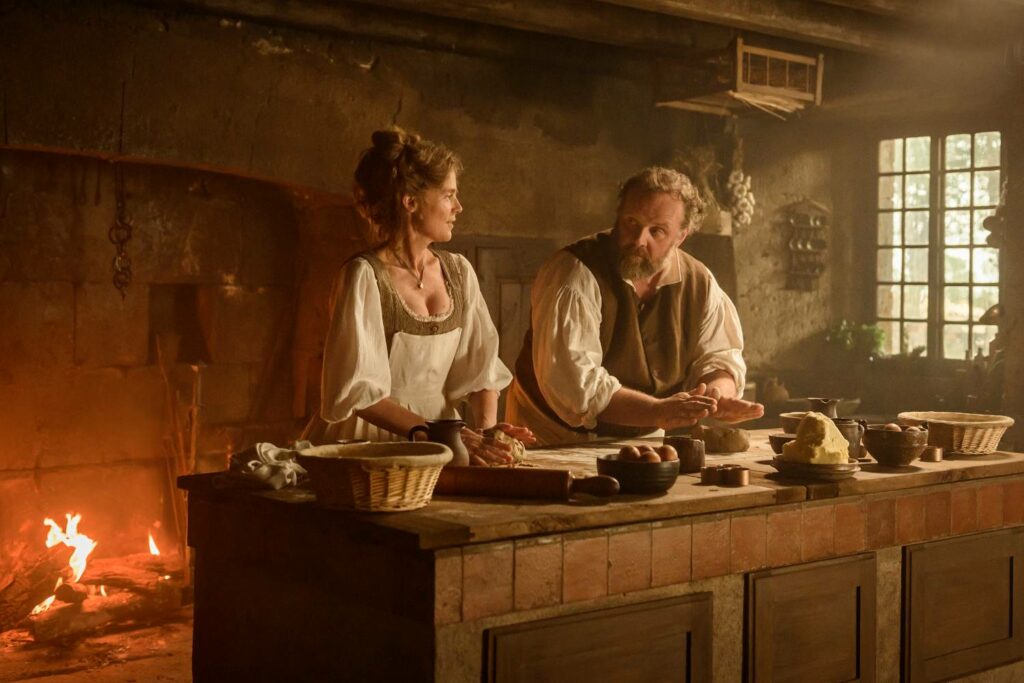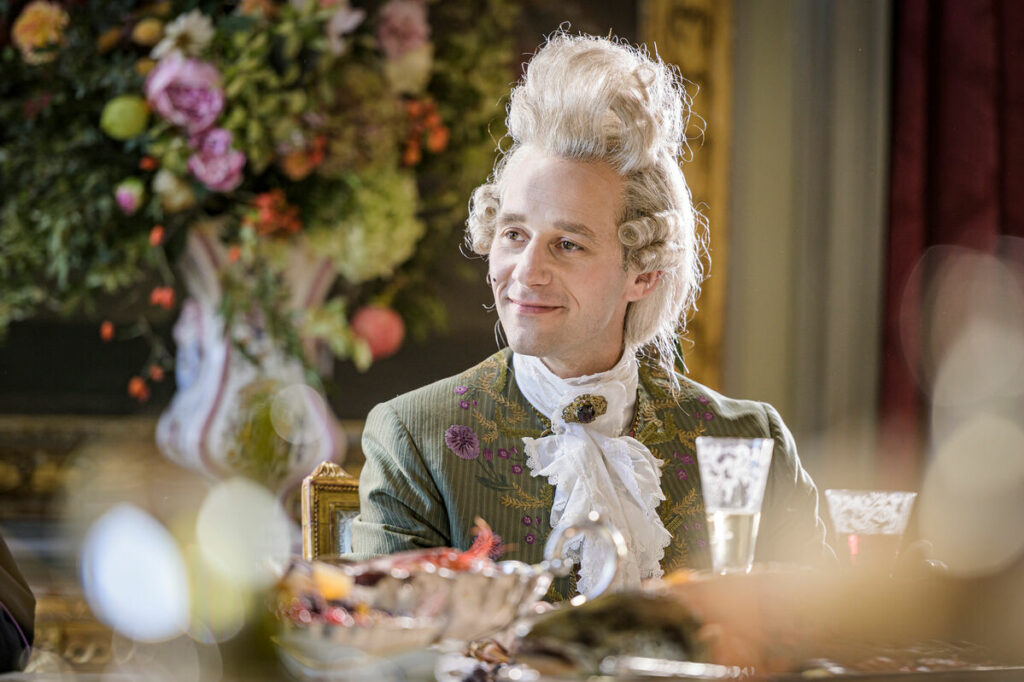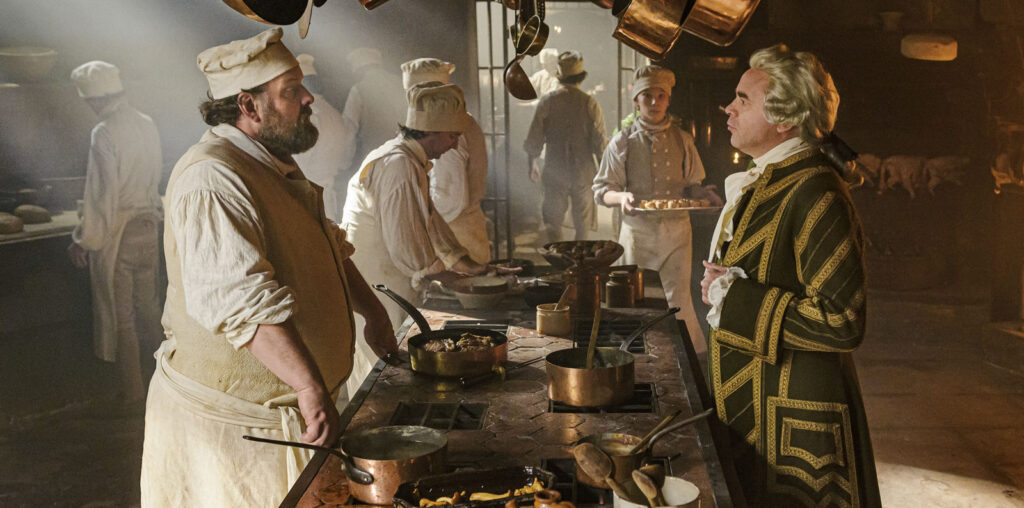There are no prizes for guessing what French director Éric Besnard’s latest film is about. But that doesn’t mean there aren’t any surprises. Like a humble potato cooked and presented with gourmet eloquence (a recurring little gimmick throughout Besnard’s story), Delicious is far more than tasty eye candy. Strip back the inescapably gobsmacking palette, and you have an enveloping story of regret, freedom and will set against the backdrop of pre-revolutionary France.

Set only months before the Bastille fell, Pierre Manceron (Grégory Gadebois) is head chef in the kitchen of The Duke of Chamfort (Benjamin Lavernhe). When Manceron cooks an experimental dish that the Duke’s guests roundly mock, the chef is sent packing. Still bearing the shackles of his former employment, Pierre and his son Benjamin (Lorenzo Lefèbvre) meet the secretive Louise (Isabelle Carré) at an unassuming road stop. Together, they open a restaurant that caters for travellers of any status, although hidden objectives and Manceron’s personal struggles threaten to derail their progress.
Food is not the be all and end all of Delicious, but it has an inescapable presence. And it is something to savour, with every dish jumping out at you with startling magnificence. Rather than the food just having a superficial presence, Besnard uses his decadent mise en scène to represent each character’s ambitions and personalities. One of the earliest scenes, with the silence accompanying Pierre in his element suddenly broken by the hustle of a busy kitchen, sets the standard for how food is used as the backdrop to both achievement and failure. Food is used in an intelligent, focused and often funny manner – a gag about the invention of chips going down especially well.

The result is an incredibly emotive story, one that effortlessly envelopes you in this world and keeps you engaged far more than you might expect. The rebellion and social upheaval can feel frustratingly contextual, always remaining out of reach of the main story (until the end that is), but then this narrative isolation reflects Pierre’s initial rejection of the outside world. Pierre’s story borders on tragic, holding on to the fragments of his past life despite his former employer having no time for him. Gadebois brings Pierre to life with a gentleness and reluctance that feels perfectly natural, yet a quick look into his eyes tells you that there is far more going on than he lets on. His chemistry with Louise is exquisite, their partnership providing the film with a much-needed soul – perhaps at the expense of Benjamin, who is left with increasingly little to do as the film progresses.
The scenario plays out in an occasionally clumsy but always endearing fashion, with the resulting restaurant a project of passion that bursts out in every frame. The warm colours of the French countryside seem to get brighter with every passing minute. If anything, some twists in the second half of the story feel out of touch with the tone of the film, but Pierre and Louise’s dynamic always manages to ground things in an understated sense of wonder. Needless to say, it is also endless fun to hate the villainous Duke, who actually has minimal time on screen yet always plays on Pierre’s mind. Lavernhe’s performance is smarmy, uptight and over the top, but not so much that he borders on pantomime.

Delicious is a film characterised by freedom, be it freedom from an oppressive job or from the shackles of the ruling classes. Or more simply to eat whatever you want, wherever you can. It is this simple yet moving central undercurrent that makes Besnard’s film the light, enjoyable affair that it is, yet also help to steer it with themes that never lose their sense of urgency. As the common folk assert themselves more and Pierre & Louise’s arcs near completion, the servants become the masters in a satisfying manner. Ultimately, Delicious is as much about the food of power as it is about the power of food.
Delicious is screening as part of the French Film Festival’s Screen Horizons programme at Summerhall, Edinburgh.
